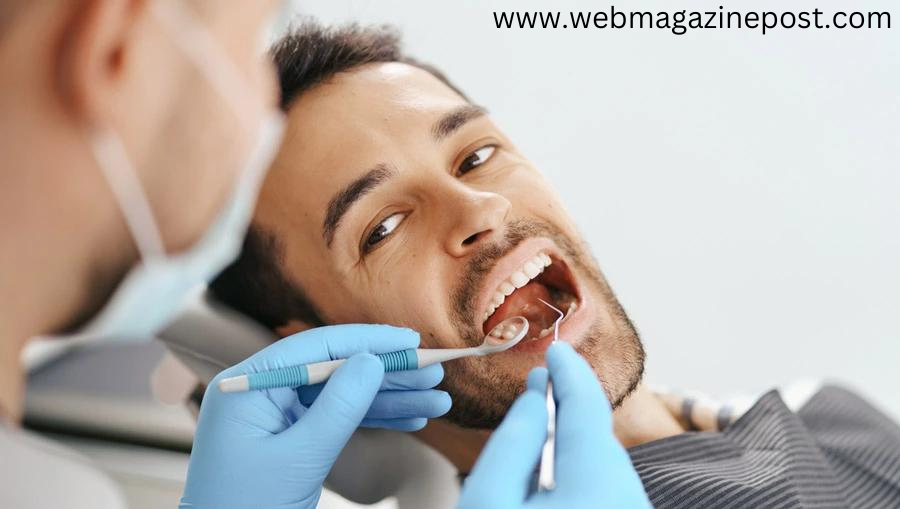
Coke Jaw: 100% Understanding the Silent Consequence of Cocaine Use Breaking Down the Myths Surrounding and Latest Research Findings
Introduction to Coke Jaw
What do you think of when you hear the term “Coke Jaw”? You might envision exaggerated stories from TV dramas or hushed whispers at social gatherings. But what exactly is it? “Coke Jaw” refers to a condition often seen in individuals who abuse cocaine, manifesting through involuntary jaw movements, clenching, and severe dental issues. This article delves deep into the concept of Coke-Jaw, exploring its causes, symptoms, effects, and ways to prevent and treat it.
Understanding Cocaine and Its Effects
What is Cocaine?
Cocaine is a potent stimulant drug made from coca plant leaves. It is commonly known as coke, blow, or snow. Cocaine can be snorted, smoked, or injected, and it produces intense euphoria and energy. However, its effects are fleeting, leading to repeated use and addiction.
How Cocaine Affects the Body
When cocaine enters the body, it acts on the central nervous system, increasing dopamine levels and creating a sense of euphoria. However, it also constricts blood vessels, raises heart rate, and increases blood pressure. This can lead to various health issues, including cardiovascular problems and neurological disorders.
Short-term and Long-term Effects of Cocaine Use
Short-term effects of cocaine use include heightened alertness, increased energy, and decreased appetite. However, long-term use can lead to severe health problems such as heart attacks, strokes, respiratory failure, and significant dental and oral health issues, including Coke-Jaw.
Symptoms of Coke Jaw

Physical Symptoms
Coke Jaw is characterized by involuntary jaw movements, teeth grinding, and jaw clenching. These actions can lead to severe dental damage, including worn-down teeth, fractures, and even tooth loss. Chronic dry mouth and gum disease are also common.
Behavioral Symptoms
Individuals with Coke-Jaw often display obsessive jaw movements and may be seen constantly chewing or grinding their teeth. This can be accompanied by other signs of cocaine use, such as hyperactivity, restlessness, and irritability.
Psychological Symptoms
The psychological toll of cocaine use and the subsequent development of Coke-Jaw can be significant. Users may experience anxiety, paranoia, and severe mood swings, further exacerbating the physical symptoms of the condition.
The Science Behind Coke Jaw
How Cocaine Causes Coke Jaw
Cocaine causes Coke’s Jaw by overstimulating the muscles responsible for jaw movement. The drug’s impact on the central nervous system leads to involuntary contractions and spasms, resulting in characteristic jaw movements and grinding.
Impact on Oral Health
The constant jaw movements and teeth grinding associated with Coke-Jaw cause extensive dental damage. Enamel erosion, tooth decay, gum disease, and even tooth loss are common among chronic users. Additionally, reduced saliva production leads to dry mouth, further increasing the risk of oral health issues.
Studies and Research on Coke Jaw
Research has shown a direct correlation between cocaine use and the development of Coke-Jaw. Studies indicate that the drug’s stimulating effects on the nervous system lead to hyperactivity in the jaw muscles, causing the characteristic symptoms. Understanding this link is crucial for developing effective treatment strategies.
Recognizing the Signs of Coke Jaw
Common Indicators
Common indicators of Coke-Jaw include persistent jaw clenching, teeth grinding, and noticeable dental damage. Users may also experience jaw pain and headaches due to the constant muscle activity.
When to Seek Help
If you or someone you know shows signs of Coke-Jaw, it is crucial to seek professional help. Early intervention can prevent further dental damage and address the underlying cocaine use. Consulting with healthcare providers, dentists, and addiction specialists is crucial.
Preventative Measures
Preventative measures include avoiding cocaine use and educating oneself about the drug’s harmful effects. Regular dental check-ups and maintaining good oral hygiene can also help mitigate the risk of developing Coke-Jaw.
Impact on Daily Life
Personal Experiences and Stories
Many individuals with Coke-Jaw share similar stories of how cocaine use has impacted their lives. These accounts often highlight the physical pain, social stigma, and emotional distress associated with the condition. Hearing these stories underscores the importance of addressing and preventing cocaine abuse.
Social and Professional Consequences
Coke-Jaw can have significant social and professional consequences. The visible dental damage and associated behavioral changes can lead to social isolation, job loss, and strained relationships. Overcoming these challenges requires comprehensive support and rehabilitation.
Mental Health Implications
The mental health implications of Coke Jaw are profound. Users may experience anxiety, depression, and paranoia, which can exacerbate the physical symptoms and hinder recovery efforts. Addressing mental health is a critical component of treating and recovering from Coke-Jaw.
Treatment and Recovery

Dental and Medical Treatments
Treatment for Coke-Jaw involves addressing both the dental and medical aspects of the condition. Dental treatments may include restorative procedures, such as crowns, bridges, and implants, to repair damaged teeth. Medical treatments focus on managing the addiction and reducing the neurological effects of cocaine.
Rehabilitation Programs
Rehabilitation programs play a vital role in recovery from cocaine addiction and Coke Jaw. These programs offer comprehensive care, including detoxification, counseling, and support groups, to help individuals overcome their addiction and rebuild their lives.
Support Systems and Counseling
Support systems and counseling are essential for individuals recovering from Coke Jaw. Family, friends, and professional counselors provide the emotional support and guidance needed to navigate the challenges of addiction and recovery.
Preventing Coke Jaw
Awareness and Education
Raising awareness and educating the public about the risks of cocaine use and the development of Coke Jaw are crucial for prevention. Informative campaigns and educational programs can help reduce the incidence of cocaine abuse.
Strategies for Avoiding Cocaine Use
Strategies for avoiding cocaine use include understanding the risks, seeking healthy alternatives for stress management, and building a strong support network. Engaging in hobbies, physical activities, and social groups can provide positive outlets and reduce the temptation to use drugs.
Community Support and Resources
Community support and resources are invaluable for preventing and addressing cocaine addiction. Local organizations, helplines, and support groups provide assistance and guidance for individuals and families affected by cocaine use.
Myths and Misconceptions
Common Myths About Cocaine Use and Coke Jaw
There are many myths about cocaine use and Coke Jaw. Some believe that occasional use is harmless or that only long-term users develop Coke Jaw. In reality, even short-term use can lead to significant dental and health issues.
Debunking False Information
Debunking false information is essential for preventing cocaine use and the development of Coke Jaw. Accurate information about the risks and consequences of cocaine use can help individuals make informed decisions and seek help if needed.
Real Stories vs. Myths
Comparing real stories of individuals with Coke Jaw to common myths highlights the severe impact of cocaine use. These stories provide a sobering reminder of the dangers of drug abuse and the importance of seeking help and support.
Legal and Social Implications

Legal Consequences of Cocaine Use
Cocaine use has significant legal consequences, including arrest, incarceration, and a criminal record. These legal issues can complicate recovery efforts and further isolate individuals from their support systems.
Social Stigma and Its Effects
The social stigma associated with cocaine use and Coke Jaw can be devastating. Individuals may face judgment, discrimination, and isolation, making it difficult to seek help and recover. Reducing stigma through education and support is crucial.
Policy and Advocacy
Policy and advocacy efforts play a vital role in addressing cocaine use and Coke Jaw. Advocating for better addiction treatment programs, increased funding for research, and comprehensive education initiatives can help reduce the prevalence of cocaine abuse.
Cultural References and Media Portrayal
How Coke Jaw is Represented in Media
Media representations of Coke Jaw often focus on extreme cases and sensationalize the condition. While this can raise awareness, it can also perpetuate stereotypes and misinformation about cocaine use.
Cultural Attitudes Towards Cocaine Use
Cultural attitudes towards cocaine use vary, but it is often glamorized in movies, music, and popular culture. Challenging these attitudes and promoting healthy, drug-free lifestyles are essential for preventing cocaine abuse.
Impact of Media on Public Perception
The media’s impact on public perception of cocaine use and Coke Jaw is significant. Positive portrayals of drug use can influence individuals to experiment with cocaine, while accurate and responsible reporting can help deter use and encourage recovery.
Case Studies
Notable Cases of Coke Jaw
Notable cases of Coke Jaw provide insight into the condition and its effects. These cases often involve public figures or high-profile incidents, shedding light on the severity of the issue and the need for intervention.
Analysis of Trends and Patterns
Analyzing trends and patterns in cocaine use and Coke Jaw can help identify risk factors and inform prevention and treatment strategies. Understanding these trends is crucial for developing effective public health policies.
Lessons Learned from Case Studies
Lessons learned from case studies highlight the importance of early intervention, comprehensive treatment, and ongoing support for individuals with Coke Jaw. These lessons can guide efforts to reduce the prevalence of cocaine use and its associated health issues.
Additional Resources
Books, Articles, and Websites for More Information
- “Cocaine: A Short History” by the Drug Policy Alliance
- National Institute on Drug Abuse (NIDA) website
- “The Anatomy of Addiction” by Akikur Mohammad
Support Groups and Helplines
- Narcotics Anonymous (NA)
- National Helpline for Substance Abuse and Mental Health Services Administration (SAMHSA)
Professional Organizations and Contacts
- American Dental Association (ADA)
- National Institute on Drug Abuse (NIDA)
Conclusion
Coke Jaw is a serious and often overlooked consequence of cocaine use. Understanding its symptoms, effects, and the importance of seeking help can make a significant difference in the lives of those affected. By raising awareness, promoting education, and providing comprehensive support, we can work towards reducing the prevalence of cocaine abuse and its devastating impact on oral health and overall well-being. If you or someone you know is struggling with cocaine use or Coke Jaw, seek professional help and support without hesitation. Together, we can make a difference.
FAQs
Common Questions About Coke Jaw
What exactly is Coke Jaw?
Coke Jaw refers to the involuntary jaw movements, teeth grinding, and severe dental damage seen in individuals who abuse cocaine.
Can Coke Jaw be reversed?
While dental damage can often be repaired, the neurological effects of cocaine may be more challenging to address. Comprehensive treatment and recovery programs are essential.
Is Coke Jaw common among all cocaine users?
Not all cocaine users develop Coke Jaw, but it is a common consequence of chronic use due to the drug’s effects on the nervous system and oral health.
What are the early signs of Coke Jaw?
Early signs include jaw clenching, teeth grinding, dry mouth, and dental issues. Recognizing these signs early can aid in preventing further damage.
Where can I find help for Coke Jaw?
Assistance for Coke Jaw is available through healthcare providers, addiction specialists, dental professionals, and support groups. Seeking professional help is essential for recovery.


